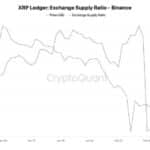(Nothing surprising here. Terms of trade are maintaining the trade surplus. Getting the Chinese to consume more is going to be especially challenging in the current environment. Their bid in Treasuries remains at the moment. Deflationary pressures should maintain the terms of trade even given declining consumption.- AM)
JANUARY 10, 2009, 8:05 A.M. ET
Wall Street Journal
SHANGHAI -- China's exports and imports both fell for the second consecutive month in December, with an accelerated contraction in trade offering a bleak outlook for the world's third-largest economy and highlighting the need for Beijing to rely more on potent fiscal stimuli.
The weak trade data, especially that of imports, showed China isn't just suffering from a global economic slowdown but also from a deterioration in local demand, an engine that the authorities have hoped would keep the economy going and unemployment in check.
China's exports in December fell 2.8% from a year earlier to $111.16 billion, while imports in the month fell 21.3% to $72.18 billion, a person familiar with the data said.
While the falling value of imports in December partly reflects declining international commodity prices, it also indicates "a sharp deceleration of economic growth in the fourth quarter and poor growth momentum in the first quarter," said Stephen Green, an economist at Standard Chartered Bank.
Machinery imports were weak in November and likely continued into December, showing that "there is a real downturn in domestic investment...and manufacturing," he added.
Beijing's recently unveiled four-trillion-yuan fiscal stimulus package, which will raise public spending on infrastructure and social welfare, will likely give some support to imports of commodities such as iron ore and metals this year, Mr. Green said.
The weak trend for imports could start stabilizing in the second half of this year as Chinese firms finishing running down their inventories and global commodities prices rebound, said Xu Jian, an analyst at China International Capital Corp.
As for China's trade surplus, despite a narrowing in December, it stayed near historically wide levels. While ordinarily trade surpluses would be welcome, the performance in the past two months was of a different and worrying nature: the strong numbers were driven by a sharper decline in imports rather than faster growth in exports as in previous months and years.
Saturday, January 10, 2009
Subscribe to:
Post Comments (Atom)



No comments:
Post a Comment